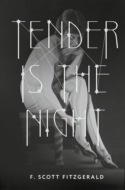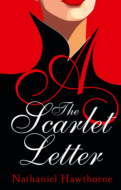Kitobni o'qish: «Tales of Horror / Страшные рассказы»
© ООО «Издательство АСТ», 2025
Metzengerstein
Pestis eram vivus – moriens tua mors ero.
– Martin Luther
Horror and fatality have been stalking abroad in all ages. Why then give a date to this story I have to tell? Let it suffice to say, that at the period of which I speak, there existed, in the interior of Hungary, a settled although hidden belief in the doctrines of the Metempsychosis. Of the doctrines themselves – that is, of their falsity, or of their probability – I say nothing. I assert, however, that much of our incredulity – as La Bruyère says of all our unhappiness —“vient de ne pouvoir être seuls.”
But there are some points in the Hungarian superstition which were fast verging to absurdity. They – the Hungarians – differed very essentially from their Eastern authorities. For example, “The soul,” said the former – I give the words of an acute and intelligent Parisian —“ne demeure qu'un seul fois dans un corps sensible: au reste – un cheval, un chien, un homme même, n'est que la ressemblance peu tangible de ces animaux.”
The families of Berlifitzing and Metzengerstein had been at variance for centuries. Never before were two houses so illustrious, mutually embittered by hostility so deadly. The origin of this enmity seems to be found in the words of an ancient prophecy —“A lofty name shall have a fearful fall when, as the rider over his horse, the mortality of Metzengerstein shall triumph over the immortality of Berlifitzing.”
To be sure the words themselves had little or no meaning. But more trivial causes have given rise – and that no long while ago – to consequences equally eventful. Besides, the estates, which were contiguous, had long exercised a rival influence in the affairs of a busy government. Moreover, near neighbors are seldom friends; and the inhabitants of the Castle Berlifitzing might look, from their lofty buttresses, into the very windows of the palace Metzengerstein. Least of all had the more than feudal magnificence, thus discovered, a tendency to allay the irritable feelings of the less ancient and less wealthy Berlifitzings. What wonder then, that the words, however silly, of that prediction, should have succeeded in setting and keeping at variance two families already predisposed to quarrel by every instigation of hereditary jealousy? The prophecy seemed to imply – if it implied anything – a final triumph on the part of the already more powerful house; and was of course remembered with the more bitter animosity by the weaker and less influential.
Wilhelm, Count Berlifitzing, although loftily descended, was, at the epoch of this narrative, an infirm and doting old man, remarkable for nothing but an inordinate and inveterate personal antipathy to the family of his rival, and so passionate a love of horses, and of hunting, that neither bodily infirmity, great age, nor mental incapacity, prevented his daily participation in the dangers of the chase.
Frederick, Baron Metzengerstein, was, on the other hand, not yet of age. His father, the Minister G – died young. His mother, the Lady Mary, followed him quickly after. Frederick was, at that time, in his fifteenth year. In a city, fifteen years are no long period – a child may be still a child in his third lustrum: but in a wilderness – in so magnificent a wilderness as that old principality, fifteen years have a far deeper meaning.
From some peculiar circumstances attending the administration of his father, the young Baron, at the decease of the former, entered immediately upon his vast possessions. Such estates were seldom held before by a nobleman of Hungary. His castles were without number. The chief in point of splendor and extent was the “Château Metzengerstein.” The boundary line of his dominions was never clearly defined; but his principal park embraced a circuit of fifty miles.
Upon the succession of a proprietor so young, with a character so well known, to a fortune so unparalleled, little speculation was afloat in regard to his probable course of conduct. And, indeed, for the space of three days, the behavior of the heir out-Heroded Herod, and fairly surpassed the expectations of his most enthusiastic admirers. Shameful debaucheries – flagrant treacheries – unheard-of atrocities – gave his trembling vassals quickly to understand that no servile submission on their part – no punctilios of conscience on his own – were thenceforward to prove any security against the remorseless fangs of a petty Caligula. On the night of the fourth day, the stables of the castle Berlifitzing were discovered to be on fire; and the unanimous opinion of the neighborhood added the crime of the incendiary to the already hideous list of the Baron's misdemeanors and enormities.
But during the tumult occasioned by this occurrence, the young nobleman himself sat apparently buried in meditation, in a vast and desolate upper apartment of the family palace of Metzengerstein. The rich although faded tapestry hangings which swung gloomily upon the walls, represented the shadowy and majestic forms of a thousand illustrious ancestors. Here, rich-ermined priests, and pontifical dignitaries, familiarly seated with the autocrat and the sovereign, put a veto on the wishes of a temporal king, or restrained with the fiat of papal supremacy the rebellious sceptre of the Arch-enemy. There, the dark, tall statures of the Princes Metzengerstein – their muscular war-coursers plunging over the carcasses of fallen foes – startled the steadiest nerves with their vigorous expression; and here, again, the voluptuous and swan-like figures of the dames of days gone by, floated away in the mazes of an unreal dance to the strains of imaginary melody.
But as the Baron listened, or affected to listen, to the gradually increasing uproar in the stables of Berlifitzing – or perhaps pondered upon some more novel, some more decided act of audacity – his eyes became unwittingly rivetted to the figure of an enormous, and unnaturally colored horse, represented in the tapestry as belonging to a Saracen ancestor of the family of his rival. The horse itself, in the foreground of the design, stood motionless and statue-like – while farther back, its discomfited rider perished by the dagger of a Metzengerstein.
On Frederick's lip arose a fiendish expression, as he became aware of the direction which his glance had, without his consciousness, assumed. Yet he did not remove it. On the contrary, he could by no means account for the overwhelming anxiety which appeared falling like a pall upon his senses. It was with difficulty that he reconciled his dreamy and incoherent feelings with the certainty of being awake. The longer he gazed the more absorbing became the spell – the more impossible did it appear that he could ever withdraw his glance from the fascination of that tapestry. But the tumult without becoming suddenly more violent, with a compulsory exertion he diverted his attention to the glare of ruddy light thrown full by the flaming stables upon the windows of the apartment.
The action, however, was but momentary, his gaze returned mechanically to the wall. To his extreme horror and astonishment, the head of the gigantic steed had, in the meantime, altered its position. The neck of the animal, before arched, as if in compassion, over the prostrate body of its lord, was now extended, at full length, in the direction of the Baron. The eyes, before invisible, now wore an energetic and human expression, while they gleamed with a fiery and unusual red; and the distended lips of the apparently enraged horse left in full view his gigantic and disgusting teeth.
Stupefied with terror, the young nobleman tottered to the door. As he threw it open, a flash of red light, streaming far into the chamber, flung his shadow with a clear outline against the quivering tapestry, and he shuddered to perceive that shadow – as he staggered awhile upon the threshold – assuming the exact position, and precisely filling up the contour, of the relentless and triumphant murderer of the Saracen Berlifitzing.
To lighten the depression of his spirits, the Baron hurried into the open air. At the principal gate of the palace he encountered three equerries. With much difficulty, and at the imminent peril of their lives, they were restraining the convulsive plunges of a gigantic and fiery-colored horse.
“Whose horse? Where did you get him?” demanded the youth, in a querulous and husky tone of voice, as he became instantly aware that the mysterious steed in the tapestried chamber was the very counterpart of the furious animal before his eyes.
“He is your own property, Sire,” replied one of the equerries, “at least he is claimed by no other owner. We caught him flying, all smoking and foaming with rage, from the burning stables of the Castle Berlifitzing. Supposing him to have belonged to the old Count's stud of foreign horses, we led him back as an estray. But the grooms there disclaim any title to the creature; which is strange, since he bears evident marks of having made a narrow escape from the flames.
“The letters W. V. B. are also branded very distinctly on his forehead,” interrupted a second equerry, “I supposed them, of course, to be the initials of Wilhelm Von Berlifitzing – but all at the castle are positive in denying any knowledge of the horse.”
“Extremely singular!” said the young Baron, with a musing air, and apparently unconscious of the meaning of his words. “He is, as you say, a remarkable horse – a prodigious horse! although, as you very justly observe, of a suspicious and untractable character; let him be mine, however,” he added, after a pause, “perhaps a rider like Frederick of Metzengerstein, may tame even the devil from the stables of Berlifitzing.”
“You are mistaken, my lord; the horse, as I think we mentioned, is not from the stables of the Count. If such had been the case, we know our duty better than to bring him into the presence of a noble of your family.”
“True!” observed the Baron, dryly, and at that instant a page of the bedchamber came from the palace with a heightened color, and a precipitate step. He whispered into his master's ear an account of the sudden disappearance of a small portion of the tapestry, in an apartment which he designated; entering, at the same time, into particulars of a minute and circumstantial character; but from the low tone of voice in which these latter were communicated, nothing escaped to gratify the excited curiosity of the equerries.
The young Frederick, during the conference, seemed agitated by a variety of emotions. He soon, however, recovered his composure, and an expression of determined malignancy settled upon his countenance, as he gave peremptory orders that a certain chamber should be immediately locked up, and the key placed in his own possession.
“Have you heard of the unhappy death of the old hunter Berlifitzing?” said one of his vassals to the Baron, as, after the departure of the page, the huge steed which that nobleman had adopted as his own, plunged and curvetted, with redoubled fury, down the long avenue which extended from the château to the stables of Metzengerstein.
“No!” said the Baron, turning abruptly toward the speaker, “dead! say you?”
“It is indeed true, my lord; and, to a noble of your name, will be, I imagine, no unwelcome intelligence.”
A rapid smile shot over the countenance of the listener. “How died he?”
“In his rash exertions to rescue a favorite portion of his hunting stud, he has himself perished miserably in the flames.”
“I-n-d-e-e-d–!” ejaculated the Baron, as if slowly and deliberately impressed with the truth of some exciting idea.
“Indeed;” repeated the vassal.
“Shocking!” said the youth, calmly, and turned quietly into the château.
From this date a marked alteration took place in the outward demeanor of the dissolute young Baron Frederick Von Metzengerstein. Indeed, his behavior disappointed every expectation, and proved little in accordance with the views of many a manoeuvering mamma; while his habits and manner, still less than formerly, offered any thing congenial with those of the neighboring aristocracy. He was never to be seen beyond the limits of his own domain, and, in this wide and social world, was utterly companionless – unless, indeed, that unnatural, impetuous, and fiery-colored horse, which he henceforward continually bestrode, had any mysterious right to the title of his friend.
Numerous invitations on the part of the neighborhood for a long time, however, periodically came in. “Will the Baron honor our festivals with his presence?” “Will the Baron join us in a hunting of the boar?” —“Metzengerstein does not hunt;” “Metzengerstein will not attend,” were the haughty and laconic answers.
These repeated insults were not to be endured by an imperious nobility. Such invitations became less cordial – less frequent – in time they ceased altogether. The widow of the unfortunate Count Berlifitzing was even heard to express a hope “that the Baron might be at home when he did not wish to be at home, since he disdained the company of his equals; and ride when he did not wish to ride, since he preferred the society of a horse.” This to be sure was a very silly explosion of hereditary pique; and merely proved how singularly unmeaning our sayings are apt to become, when we desire to be unusually energetic.
The charitable, nevertheless, attributed the alteration in the conduct of the young nobleman to the natural sorrow of a son for the untimely loss of his parents – forgetting, however, his atrocious and reckless behavior during the short period immediately succeeding that bereavement. Some there were, indeed, who suggested a too haughty idea of self-consequence and dignity. Others again (among them may be mentioned the family physician) did not hesitate in speaking of morbid melancholy, and hereditary ill-health; while dark hints, of a more equivocal nature, were current among the multitude.
Indeed, the Baron's perverse attachment to his lately-acquired charger – an attachment which seemed to attain new strength from every fresh example of the animal's ferocious and demon-like propensities – at length became, in the eyes of all reasonable men, a hideous and unnatural fervor. In the glare of noon – at the dead hour of night – in sickness or in health – in calm or in tempest – the young Metzengerstein seemed rivetted to the saddle of that colossal horse, whose intractable audacities so well accorded with his own spirit.
There were circumstances, moreover, which coupled with late events, gave an unearthly and portentous character to the mania of the rider, and to the capabilities of the steed. The space passed over in a single leap had been accurately measured, and was found to exceed, by an astounding difference, the wildest expectations of the most imaginative. The Baron, besides, had no particular name for the animal, although all the rest in his collection were distinguished by characteristic appellations. His stable, too, was appointed at a distance from the rest; and with regard to grooming and other necessary offices, none but the owner in person had ventured to officiate, or even to enter the enclosure of that particular stall. It was also to be observed, that although the three grooms, who had caught the steed as he fled from the conflagration at Berlifitzing, had succeeded in arresting his course, by means of a chain-bridle and noose – yet no one of the three could with any certainty affirm that he had, during that dangerous struggle, or at any period thereafter, actually placed his hand upon the body of the beast. Instances of peculiar intelligence in the demeanor of a noble and high-spirited horse are not to be supposed capable of exciting unreasonable attention – especially among men who, daily trained to the labors of the chase, might appear well acquainted with the sagacity of a horse – but there were certain circumstances which intruded themselves per force upon the most skeptical and phlegmatic; and it is said there were times when the animal caused the gaping crowd who stood around to recoil in horror from the deep and impressive meaning of his terrible stamp – times when the young Metzengerstein turned pale and shrunk away from the rapid and searching expression of his earnest and human-looking eye.
Among all the retinue of the Baron, however, none were found to doubt the ardor of that extraordinary affection which existed on the part of the young nobleman for the fiery qualities of his horse; at least, none but an insignificant and misshapen little page, whose deformities were in everybody's way, and whose opinions were of the least possible importance. He – if his ideas are worth mentioning at all – had the effrontery to assert that his master never vaulted into the saddle without an unaccountable and almost imperceptible shudder, and that, upon his return from every long-continued and habitual ride, an expression of triumphant malignity distorted every muscle in his countenance.
One tempestuous night, Metzengerstein, awaking from a heavy slumber, descended like a maniac from his chamber, and, mounting in hot haste, bounded away into the mazes of the forest. An occurrence so common attracted no particular attention, but his return was looked for with intense anxiety on the part of his domestics, when, after some hours' absence, the stupendous and magnificent battlements of the Chateau Metzengerstein, were discovered crackling and rocking to their very foundation, under the influence of a dense and livid mass of ungovernable fire.
As the flames, when first seen, had already made so terrible a progress that all efforts to save any portion of the building were evidently futile, the astonished neighborhood stood idly around in silent and pathetic wonder. But a new and fearful object soon rivetted the attention of the multitude, and proved how much more intense is the excitement wrought in the feelings of a crowd by the contemplation of human agony, than that brought about by the most appalling spectacles of inanimate matter.
Up the long avenue of aged oaks which led from the forest to the main entrance of the Château Metzengerstein, a steed, bearing an unbonneted and disordered rider, was seen leaping with an impetuosity which outstripped the very Demon of the Tempest.
The career of the horseman was indisputably, on his own part, uncontrollable. The agony of his countenance, the convulsive struggle of his frame, gave evidence of superhuman exertion: but no sound, save a solitary shriek, escaped from his lacerated lips, which were bitten through and through in the intensity of terror. One instant, and the clattering of hoofs resounded sharply and shrilly above the roaring of the flames and the shrieking of the winds – another, and, clearing at a single plunge the gate-way and the moat, the steed bounded far up the tottering staircases of the palace, and, with its rider, disappeared amid the whirlwind of chaotic fire.
The fury of the tempest immediately died away, and a dead calm sullenly succeeded. A white flame still enveloped the building like a shroud, and, streaming far away into the quiet atmosphere, shot forth a glare of preternatural light; while a cloud of smoke settled heavily over the battlements in the distinct colossal figure of – a horse.
Ms. Found in a Bottle
Qui n'a plus qu'un moment a vivre N'a plus rien a dissimuler.
– Quinault – Atys
Of my country and of my family I have little to say. Ill usage and length of years have driven me from the one, and estranged me from the other. Hereditary wealth afforded me an education of no common order, and a contemplative turn of mind enabled me to methodize the stores which early study very diligently garnered up. Beyond all things, the study of the German moralists gave me great delight; not from any ill-advised admiration of their eloquent madness, but from the ease with which my habits of rigid thought enabled me to detect their falsities. I have often been reproached with the aridity of my genius; a deficiency of imagination has been imputed to me as a crime; and the Pyrrhonism of my opi-nions has at all times rendered me notorious. Indeed, a strong relish for physical philosophy has, I fear, tinctured my mind with a very common error of this age – I mean the habit of referring occurrences, even the least susceptible of such reference, to the principles of that science. Upon the whole, no person could be less liable than myself to be led away from the severe precincts of truth by the ignes fatui of superstition. I have thought proper to premise thus much, lest the incredible tale I have to tell should be considered rather the raving of a crude imagination, than the positive experience of a mind to which the reveries of fancy have been a dead letter and a nullity.
After many years spent in foreign travel, I sailed in the year 18from the port of Batavia, in the rich and populous island of Java, on a voyage to the Archipelago of the Sunda islands. I went as passenger – having no other inducement than a kind of nervous restlessness which haunted me as a fiend.
Our vessel was a beautiful ship of about four hundred tons, copper-fastened, and built at Bombay of Malabar teak. She was freighted with cotton-wool and oil, from the Lachadive islands. We had also on board coir, jaggeree, ghee, cocoa-nuts, and a few cases of opium. The stowage was clumsily done, and the vessel consequently crank.
We got under way with a mere breath of wind, and for many days stood along the eastern coast of Java, without any other incident to beguile the monotony of our course than the occasional meeting with some of the small grabs of the Archipelago to which we were bound.
One evening, leaning over the taffrail, I observed a very singular, isolated cloud, to the N.W. It was remarkable, as well for its color, as from its being the first we had seen since our departure from Batavia. I watched it attentively until sunset, when it spread all at once to the eastward and westward, girting in the horizon with a narrow strip of vapor, and looking like a long line of low beach. My notice was soon afterwards attracted by the dusky-red appearance of the moon, and the peculiar character of the sea. The latter was undergoing a rapid change, and the water seemed more than usually transparent. Although I could distinctly see the bottom, yet, heaving the lead, I found the ship in fifteen fathoms. The air now became intolerably hot, and was loaded with spiral exhalations similar to those arising from heat iron. As night came on, every breath of wind died away, and a more entire calm it is impossible to conceive. The flame of a candle burned upon the poop without the least perceptible motion, and a long hair, held between the finger and thumb, hung without the possibility of detecting a vibration. However, as the captain said he could perceive no indication of danger, and as we were drifting in bodily to shore, he ordered the sails to be furled, and the anchor let go. No watch was set, and the crew, consisting principally of Malays, stretched themselves deliberately upon deck. I went below – not without a full presentiment of evil. Indeed, every appearance warranted me in apprehending a Simoom. I told the captain my fears; but he paid no attention to what I said, and left me without deigning to give a reply. My uneasiness, however, prevented me from sleeping, and about midnight I went upon deck. As I placed my foot upon the upper step of the companion-ladder, I was startled by a loud, humming noise, like that occasioned by the rapid revolution of a mill-wheel, and before I could ascertain its meaning, I found the ship quivering to its centre. In the next instant, a wilderness of foam hurled us upon our beam-ends, and, rushing over us fore and aft, swept the entire decks from stem to stern.
The extreme fury of the blast proved, in a great measure, the salvation of the ship. Although completely water-logged, yet, as her masts had gone by the board, she rose, after a minute, heavily from the sea, and, staggering awhile beneath the immense pressure of the tempest, finally righted.
By what miracle I escaped destruction, it is impossible to say. Stunned by the shock of the water, I found myself, upon recovery, jammed in between the stern-post and rudder. With great difficulty I gained my feet, and looking dizzily around, was, at first, struck with the idea of our being among breakers; so terrific, beyond the wildest imagination, was the whirlpool of mountainous and foaming ocean within which we were engulfed. After a while, I heard the voice of an old Swede, who had shipped with us at the moment of our leaving port. I hallooed to him with all my strength, and presently he came reeling aft. We soon discovered that we were the sole survivors of the accident. All on deck, with the exception of ourselves, had been swept overboard;– the captain and mates must have perished as they slept, for the cabins were deluged with water. Without assistance, we could expect to do little for the security of the ship, and our exertions were at first paralyzed by the momentary expectation of going down. Our cable had, of course, parted like pack-thread, at the first breath of the hurricane, or we should have been instantaneously overwhelmed. We scudded with frightful velocity before the sea, and the water made clear breaches over us. The frame-work of our stern was shattered excessively, and, in almost every respect, we had received considerable injury; but to our extreme joy we found the pumps unchoked, and that we had made no great shifting of our ballast. The main fury of the blast had already blown over, and we apprehended little danger from the violence of the wind; but we looked forward to its total cessation with dismay; well believing, that, in our shattered condition, we should inevitably perish in the tremendous swell which would ensue. But this very just apprehension seemed by no means likely to be soon verified. For five entire days and nights – during which our only subsistence was a small quantity of jaggeree, procured with great difficulty from the forecastle – the hulk flew at a rate defying computation, before rapidly succeeding flaws of wind, which, without equalling the first violence of the Simoom, were still more terrific than any tempest I had before encountered. Our course for the first four days was, with trifling variations, S.E. and by S.; and we must have run down the coast of New Holland. On the fifth day the cold became extreme, although the wind had hauled round a point more to the northward. The sun arose with a sickly yellow lustre, and clambered a very few degrees above the horizon – emitting no decisive light. There were no clouds apparent, yet the wind was upon the increase, and blew with a fitful and unsteady fury. About noon, as nearly as we could guess, our attention was again arrested by the appearance of the sun. It gave out no light, properly so called, but a dull and sullen glow without reflection, as if all its rays were polarized. Just before sinking within the turgid sea, its central fires suddenly went out, as if hurriedly extinguished by some unaccountable power. It was a dim, sliver-like rim, alone, as it rushed down the unfathomable ocean.
We waited in vain for the arrival of the sixth day – that day to me has not yet arrived – to the Swede, never did arrive. Thenceforward we were enshrouded in patchy darkness, so that we could not have seen an object at twenty paces from the ship. Eternal night continued to envelop us, all unrelieved by the phosphoric sea-brilliancy to which we had been accustomed in the tropics. We observed too, that, although the tempest continued to rage with unabated violence, there was no longer to be discovered the usual appearance of surf, or foam, which had hitherto attended us. All around were horror, and thick gloom, and a black sweltering desert of ebony. Superstitious terror crept by degrees into the spirit of the old Swede, and my own soul was wrapped up in silent wonder. We neglected all care of the ship, as worse than useless, and securing ourselves, as well as possible, to the stump of the mizen-mast, looked out bitterly into the world of ocean. We had no means of calculating time, nor could we form any guess of our situation. We were, however, well aware of having made farther to the southward than any previous navigators, and felt great amazement at not meeting with the usual impediments of ice. In the meantime every moment threatened to be our last – every mountainous billow hurried to overwhelm us. The swell surpassed anything I had imagined possible, and that we were not instantly buried is a miracle. My companion spoke of the lightness of our cargo, and reminded me of the excellent qualities of our ship; but I could not help feeling the utter hopelessness of hope itself, and prepared myself gloomily for that death which I thought nothing could defer beyond an hour, as, with every knot of way the ship made, the swelling of the black stupendous seas became more dismally appalling. At times we gasped for breath at an elevation beyond the albatross – at times became dizzy with the velocity of our descent into some watery hell, where the air grew stagnant, and no sound disturbed the slumbers of the kraken.
We were at the bottom of one of these abysses, when a quick scream from my companion broke fearfully upon the night. “See! see!” cried he, shrieking in my ears, “Almighty God! see! see!” As he spoke, I became aware of a dull, sullen glare of red light which streamed down the sides of the vast chasm where we lay, and threw a fitful brilliancy upon our deck. Casting my eyes upwards, I beheld a spectacle which froze the current of my blood. At a terrific height directly above us, and upon the very verge of the precipitous descent, hovered a gigantic ship of, perhaps, four thousand tons. Although upreared upon the summit of a wave more than a hundred times her own altitude, her apparent size exceeded that of any ship of the line or East Indiaman in existence. Her huge hull was of a deep dingy black, unrelieved by any of the customary carvings of a ship. A single row of brass cannon protruded from her open ports, and dashed from their polished surfaces the fires of innumerable battle-lanterns, which swung to and fro about her rigging. But what mainly inspired us with horror and astonishment, was that she bore up under a press of sail in the very teeth of that supernatural sea, and of that ungovernable hurricane. When we first discovered her, her bows were alone to be seen, as she rose slowly from the dim and horrible gulf beyond her. For a moment of intense terror she paused upon the giddy pinnacle, as if in contemplation of her own sublimity, then trembled and tottered, and – came down.








